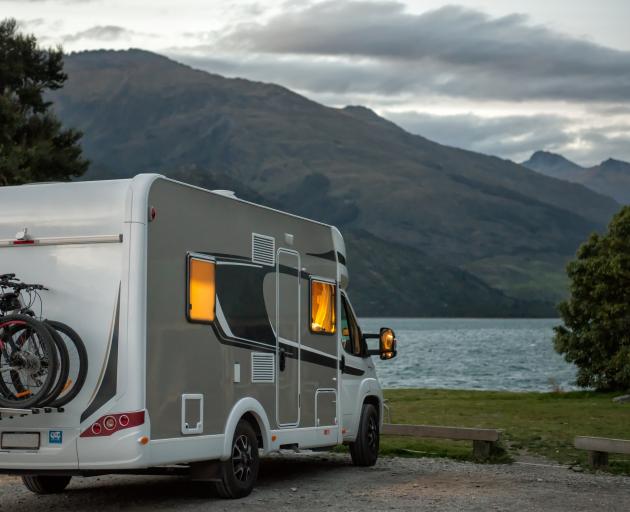
Proposals include limiting vehicle-based freedom camping to those certified as self-contained, tougher penalties and fines, strengthening the standard for self-contained vehicles, and additional grounds to confiscate vehicles breaching the rules. Penalties include $1000 fines or vehicle confiscation.
The burden of collecting the fines from campers who hire vehicles may fall to rental companies.
Tourism Minister Stuart Nash has released a discussion document to seek public feedback on the proposals.
Research from the Ministry of Business, Innovation and Employment show there were an estimated 245,000 freedom campers in 2019 with international visitors accounting for more than 60 percent.
Nash said the proposed rules were aimed to improve freedom camping, protect the environment and remove unfair burdens on locals.
"The most consistent complaints I hear about the tourism sector relate to abuse of the freedom camping rules. A sub-group of visitors are spoiling the experience for more responsible campers and for locals who are left to clean up the mess," Nash said.
"In Northland, growing pressure from a surge in freedom camping saw Whangārei ban the practice at coastal sites this summer.
"Marlborough District Council found 500 vehicles tried to illegally camp over summer. Golden Bay locals say bird nesting sites are threatened by campers.
"In Queenstown, freedom camping is banned within city limits."
The rules were not aimed to stamp out freedom camping, but to ensure that there were clear rules and expectations, he said.
"Backpackers and budget travellers are welcome. Responsible campers in motorhomes, caravans or budget vehicles in campgrounds are welcome. But it must be 'right vehicle, right place.' This document asks for public feedback on the future of vehicles that are not self-contained."
The freedom camping rules do not apply to camping in remote or wilderness areas that are more than 200 metres from where you can drive, Great Walk Tracks or coastlines.
They have never applied when people pull off the road to take a rest from driving and are not intended to allow local authorities to target homeless people.
"Improving freedom camping regulations will go a long way to changing campers' behaviour and protecting Brand New Zealand. Abuse of the system threatens the unique and precious qualities that make us such a desirable tourism destination in the first place," he said.
"Changes will also support small business owners who run campgrounds or backpackers' hostels, who have lost business. Private campgrounds offer sites from around $20 a night. DOC has hundreds of campsites, many of which are free or as low as six dollars a night."
Government funding has been granted over the last three years to invest in council facilities and programmes to help manage freedom camping and ensure communities with high visitor numbers but small ratepayer bases can afford tourism infrastructure.
MAIN PROPOSALS
• Potentially limiting vehicle based freedom camping to those certified as self contained, or requiring non-self contained vehicle-based freedom campers to stay at a site with toilets. That would noy apply to freedom campers on public conservation land and regional parks.
• Stronger powers to enforce the rules including ensuring there's a regulatory system for certifying self-contained vehicles that involves checking the plumbing work and centralised vehicle register, tougher penalties and fines, requiring rental vehicle companies to collect fines, and additional grounds for confiscating vehicles the breach the rules.
• Strengthening the standard for self-contained vehicles which could include testing whether toilets should be required to be permanently plumbed in to self-contained vehicles rather than merely portable.
Submissions can be made online, by email or mail until May 16, with government tourism officials hosting public information sessions and webinars around Aotearoa.
Comments
"The burden of collecting the fines from campers who hire vehicles may fall to rental companies" and guess what those companies are going to do?..... jack the prices up.
Good idea - send the fine to the registration Number owner, and they need to pay whether or not they then manage to collect it from whoever was using the vehicle. It is the companies vehicle - they need to take responsibility for letting to irresponsible people. However, a lot of the vehicles I see are family movers - the registration again taken and owners stopped at the border before departure might work.











